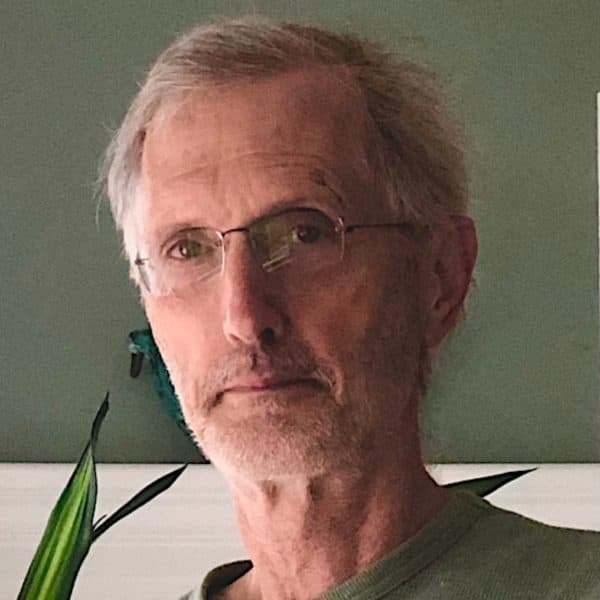Advertisement
Commentary
Gov. Healey, Pope Francis and the doctrine of 'integral ecology'

Gov. Maura Healey and Boston Mayor Michelle Wu are in Rome this week, participating in a climate change conference titled “From Climate Crisis to Climate Resilience”, hosted by Pope Francis in a Renaissance villa at the Vatican. California’s Gov. Gavin Newsom, Gov. Kathy Hochul of New York and other leading figures from around the globe will be there, too.
Healey was invited to give the keynote address on the opening day of the conference, a perhaps surprising choice by the Holy See given that she is secular, openly gay and staunchly pro-choice despite identifying as Catholic. Some of her stances directly contradict key Catholic doctrines, making her a controversial selection by the Church for such a prominent speaking role. One hard-line religious brother labeled her a corrupt “pro-Abort, partnered lesbian,” and a conservative Catholic organization in Massachusetts expressed outrage, saying that Healey’s — and Wu’s — presence at the summit showed “callous contempt” for pro-life Catholics.
Despite the controversy over Healey's secular, LGBTQ+ and pro-choice stances, the Vatican clearly prioritized her conspicuous role at the pope's climate summit. This decision likely stems from Healey's environmental policies exhibiting the kind of holistic, interconnected vision articulated in Pope Francis's doctrine of "integral ecology." This school of thought, detailed in Pope Francis’ 2015 encyclical Laudato Si, emphasizes the interconnectedness of the social, economic and environmental dimensions of our world.
Pope Francis put it this way: “... [W]e have to realize that a true ecological approach always becomes a social approach; it must integrate questions of justice in debates on the environment, so as to hear both the cry of the earth and the cry of the poor.” He views the climate crisis as inseparable from a human crisis comprising a variety of social ills.
In her address to the conference, Healey touched on several themes that resonate with integral ecology, notably the need for environmental justice, the importance of a holistic government approach and the requirement to harmonize economic development and climate resilience strategies.
Healey underscored the disproportionate impact of climate change on the world’s most vulnerable populations. She stated at the outset, “There are billions counting on us, particularly those who are the most vulnerable, the poor, the closest to the pain." Pivoting to the regional scale, Healey called out the plight of Massachusetts farmers who were devastated by unprecedented storms in 2023, and she noted the state’s efforts to provide relief and keep the farms afloat. "We are prioritizing environmental justice to put first those who have been harmed most regularly," she pointed out. This focus on justice reflects integral ecology’s prioritization of the common good, a principle that Pope Francis calls “logically and inevitably, a summons to solidarity”.
Healey’s embrace of an all-of-government approach to climate change reifies the comprehensive nature of the pope’s integral ecology. She established the Office of Climate Innovation and Resilience, the first of its kind in the country. She appointed Melissa Hoffer as climate chief to ensure that climate awareness permeates every aspect of the state’s executive branch. In her speech at this week’s summit, Healey said, "We need to align all of our efforts around our climate goals." In Healey’s administration, every state agency, from education to health services, plays a role in combating climate change.
The pope has advocated for just such an approach. He contrasts his integrated framework with what he terms the “technocratic paradigm,” which diminishes the role of government and places excessive faith in technology and the market economy. In Laudato Si’, he argued that the moral foundations of society are compromised when the prioritization of profits overshadows human dignity and environmental integrity. Solutions that rely solely on technology drive inequality and result in unevenly distributed economic benefits.
Francis also insists that "technological and economic development which does not leave in its wake a better world and an integrally higher quality of life cannot be considered progress.”
Advertisement
Healey’s embrace of an all-of-government approach to climate change reifies the comprehensive nature of the pope’s integral ecology.
Healey's vision for sustainable and just economic development reflects this call for economic systems that respect people and the environment. The governor noted, "We don’t have to choose between a healthy economy and climate protection," adding that “climate protection is an essential element of a healthy economy.”
And she’s walking the walk. Her establishment of the Massachusetts Community Climate Bank and the just-announced Massachusetts Climate Careers Fund (both of which are first-in-the-nation initiatives) are two examples that demonstrate a commitment to reconciling economic development with climate goals.
Crafting policies for equitable and effective climate action will require adopting a holistic and inclusive approach. Through her alignment with Pope Francis's integral ecology, Gov. Healey sets a powerful example of how policymakers can confront the climate crisis while simultaneously addressing issues of equity, justice and human dignity. Her administration's multifaceted approach offers a blueprint for building a future where climate resilience and social progress go hand in hand.

